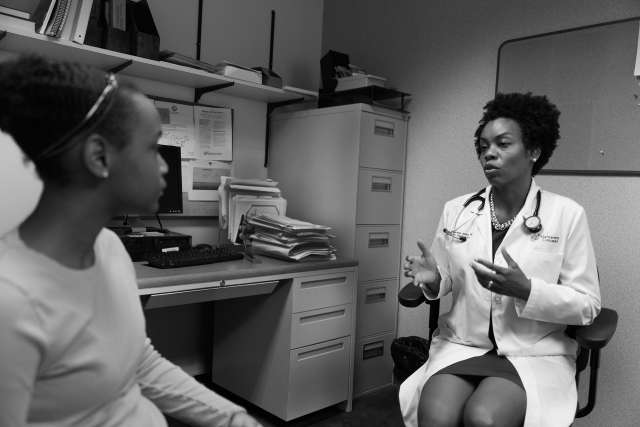How Do Children With IBD and Their Caregivers Perceive Biosimilars?
How Do Children With IBD and Their Caregivers Perceive Biosimilars? https://pediatricsnationwide.org/wp-content/uploads/2022/06/Health-literacy-image.jpg 640 427 JoAnna Pendergrass, DVM JoAnna Pendergrass, DVM https://pediatricsnationwide.org/wp-content/uploads/2021/03/pendergrass_01.jpg
Many pediatric patients with inflammatory bowel disease and their caregivers are unaware of biosimilars, creating an opportunity for providers to educate patients and their families about this effective and less expensive treatment option.
Infliximab is a biologic therapy that effectively manages inflammatory bowel disease (IBD) in adult and pediatric patients. However, biologic therapies are expensive, placing a heavy financial burden on patients and their caregivers.
Biosimilars are significantly less expensive than the originator (original FDA-approved medication), with equivalent safety and efficacy. They are not generics, however. “Biologics are very complex to make, so it is not possible to create a 100% replica of the originator,” explains Ross Maltz, MD, attending pediatric gastroenterologist at Nationwide Children’s Hospital.
“Increasing the use of biosimilars is one of the main ways to bring down health care and pharmaceutical costs and improve treatment access to families,” he says.
The FDA approved an infliximab biosimilar in 2016. However, studies of adult patients with IBD have reported a lack of awareness of biosimilars; those familiar with biosimilars had a negative perception of them.
Studies have not yet assessed the perspective of pediatric patients with IBD and their caregivers about biosimilars. To fill this knowledge gap, Drs. Maltz and Lina Yossef MD, research coordinator for Nationwide Children’s IBD Clinic Team, and their research team conducted a survey to gain this perspective.
Survey results were published in the Journal of Pediatric Gastroenterology and Nutrition.
“Most patients and caregivers in our study had never heard of biosimilars,” says Dr. Yossef. “Caregiver respondents that had previously heard of biosimilars were more likely to have a negative perception of them,” she adds.
Between June and October 2020 at Nationwide Children’s, the research team recruited pediatric patients with IBD receiving intravenous infliximab therapy (n=98) and caregivers of pediatric patients with IBD receiving infliximab therapy (n=67).
Most survey participants — 64% of caregivers and 79% of patients — were unaware of biosimilars. Dr. Maltz explains that biosimilars for IBD were unavailable when most of these patients started infliximab therapy. Also, insurance companies were not yet mandating that patients should be started on the biosimilar vs the originator at that time. Thus, pediatric providers may not have discussed biosimilars with these patients and their caregivers.
Survey participants also indicated discomfort with switching to the biosimilar, despite its lower cost and equivalent safety and efficacy. Dr. Maltz suggests that this discomfort could be because the patients and their caregivers were already familiar with infliximab and satisfied with its therapeutic benefits and unfamiliar with biosimilars.
Compared to caregivers who were unaware of biosimilars, those familiar with them were significantly more likely to have a negative perception of them. This negative perception of biosimilars raises the risk of the “nocebo” effect, which describes how an initial negative perception of a particular therapy can worsen treatment outcomes.
Given the survey results, Drs. Maltz and Yossef stressed the importance of educating patients and caregivers about biosimilars, without pressure to switch to the biosimilar from the originator.
Ideally, they say providers would offer this education.
“Ultimately, patients, caregivers and their families want to hear from their providers whom they know and trust, especially during times of change,” says Dr. Maltz.
Dr. Yossef advises allowing plenty of time for addressing questions and concerns when discussing biosimilars with patients and their caregivers.
The research team now plans to analyze several data sets about biosimilars, including pediatric gastroenterologist perspectives about biosimilars, cost comparisons between biosimilars and originator therapies, and the long-term safety and efficacy of biosimilars for treating pediatric IBD.
Reference
Yossef L, Wright M, Benedict J, Morris GA, McNicol M, Boyle B, Dotson JL, Michel HK, Maltz RM. Patient and Caregivers’ Perspectives on Biosimilar Use in Pediatric Inflammatory
Bowel Disease. Journal of Pediatric Gastroenterology and Nutrition. 30 May 2022. [Online ahead of print]
About the author
JoAnna Pendergrass, DVM, is a veterinarian and freelance medical writer in Atlanta, GA. She received her veterinary degree from the Virginia-Maryland College of Veterinary Medicine and completed a 2-year postdoctoral research fellowship at Emory University’s Yerkes Primate Research Center before beginning her career as a medical writer.
As a freelance medical writer, Dr. Pendergrass focuses on pet owner education and health journalism. She is a member of the American Medical Writers Association and has served as secretary and president of AMWA’s Southeast chapter.
In her spare time, Dr. Pendergrass enjoys baking, running, and playing the viola in a local community orchestra.
- JoAnna Pendergrass, DVMhttps://pediatricsnationwide.org/author/joanna-pendergrass-dvm/
- JoAnna Pendergrass, DVMhttps://pediatricsnationwide.org/author/joanna-pendergrass-dvm/
- JoAnna Pendergrass, DVMhttps://pediatricsnationwide.org/author/joanna-pendergrass-dvm/
- JoAnna Pendergrass, DVMhttps://pediatricsnationwide.org/author/joanna-pendergrass-dvm/










